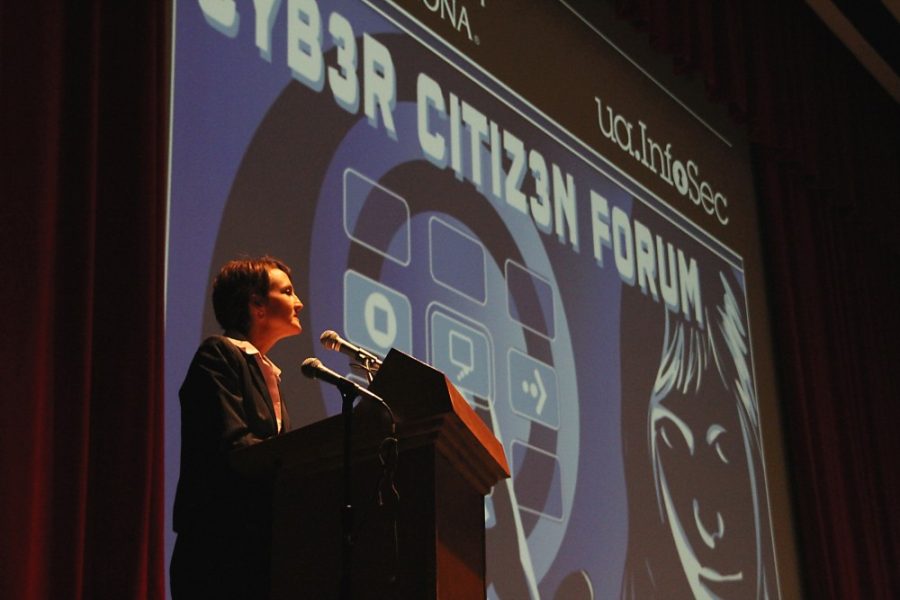The Cyber Citizen Forum’s message to UA students is the same as it is to the other 2 billion users on the Internet — stay safe in cyberspace.
The Department of Homeland Security partnered with the UA’s Information Security Office for Thursday’s event in Centennial Hall and speakers highlighted every issue from identity theft to cyberbullying. The UA is the last stop in the DHS’ “Stop. Think. Connect.” campaign that’s raising awareness across the country about Internet safety. October is National Cyber Security Awareness month.
“When you decide to download ‘Angry Birds’ without paying for it, it might not be free out of the kindness of somebody’s heart. It could have malicious software rolled into it,” said Kelley Bogart, senior information security analyst with the Information Security Office. “We want the average user to start understanding more about cyber security.”
Carmen Canchola Shimm, a non-UA member who attended the event, said she was most surprised to learn about organizations that collect information from social media sites and then sell it to businesses.
“They have your information before you even apply,” she said. “I find that frightening.”
In a state ranked second in the nation for identity theft, which is probably related to immigration, it’s important for UA students to become more aware of online disasters and how to prevent them, especially when Arizona’s most likely identity theft victims are between 20 and 29, Bogart said.
Tips to prevent identity theft included not using the same password twice and locking computers and cellphones. To handle phishing emails, which are designed to imitate trustworthy organizations asking for personal information, users are encouraged not to open emails from strangers and to enter a URL by hand instead of clicking links. Beware of requests to update or confirm your personal information. Adjusting Facebook privacy settings should be done to safeguard private information.
And don’t forget to Google yourself.
“I call it ego surfing,” Bogart said. “Make sure you’re aware of what someone can find out about you.”
Event organizers raffled off iPads, gift cards, printers and other prizes. The event cost around $1,500 and between 350 and 400 people attended, said Teresa Banks, senior program coordinator with the Information Security Office. Bogart said it’s the first time the Department of Homeland Security has collaborated with the UA for an event like this.
“Just like the slogan, I hope students stop, think and connect after the event,” Bogart said. “Stop and think about what you’re doing and what the consequences might be before you make a decision.”
Roy Burgess, the lead on the National Initiative for Cybersecurity Education, encouraged members of the crowd to share the information they learned with anyone who would listen. “Become a source of information, it’s a shared responsibility,” he said. “Friends don’t let friends do stupid things.”
Javier Lagarda, a management information systems junior, said the event was informative and that he wasn’t surprised by the content.
“I’m more surprised by how little people know,” he said. “ I’m hoping to teach other people what I learned because the percentage of people that aren’t aware of this stuff is staggering.”









